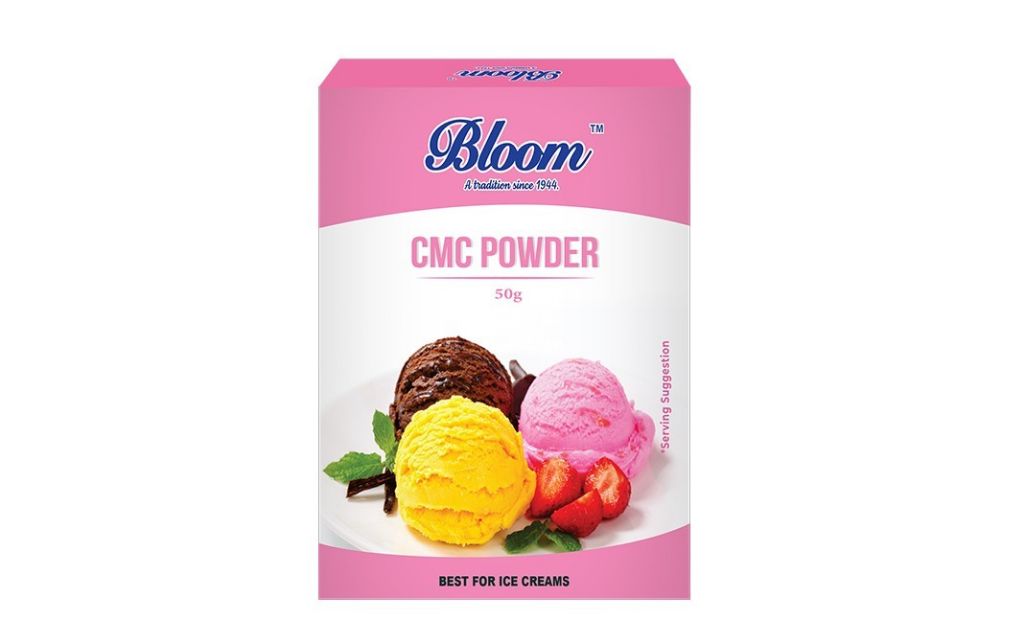What Is Cmc Powder Used For?
What is CMC Powder?
CMC powder or carboxymethylcellulose is a food additive that is used as a thickener, stabilizer, and emulsifier in many food products. It is derived from cellulose, the main component of plant cell walls. Cellulose undergoes a chemical process called etherification to produce CMC powder (cite: https://cakecreator.wordpress.com/tag/what-is-cmc-powder/).
CMC powder was first developed in the late 19th century and has been widely used in food production since the 1920s. It is an approved food additive in many countries and has the E number E466. CMC is also known as cellulose gum or sodium carboxymethyl cellulose (cite: https://cakecreator.wordpress.com/tag/what-is-cmc-powder/).
To produce CMC powder, cellulose from plant sources is treated with sodium hydroxide and monochloroacetic acid. This causes a chemical reaction that transforms the cellulose into a water-soluble form. The CMC powder is then extracted, washed, and dried for use as an additive (cite: https://cakecreator.wordpress.com/tag/what-is-cmc-powder/).
Food Uses
CMC powder is commonly used as an additive in many foods and beverages to help improve the texture and shelf-life. One of the main uses of CMC in foods is as a thickening agent. When CMC powder is dissolved in water, it quickly forms a gel that increases the viscosity of the liquid (CMC Usages in Food Industry). This makes it useful for creating thicker sauces, gravies, soups, and other prepared foods. CMC is also utilized as a stabilizer in foods. It helps bind ingredients together and prevents separation, allowing foods like salad dressings, ice cream, and yogurt to maintain an even consistency.
In addition, CMC serves as an effective texture modifier. It can create desirable mouthfeels like creaminess, crispness, and increased juiciness in foods. For example, CMC is used in some low-fat ice creams to provide a rich, creamy texture despite having less fat. It also gives a juicy crunch to fruits like apples that have been pre-sliced for convenience. The ability of CMC to absorb water and control moisture makes it useful for improving the texture of many processed foods (Carboxymethylcellulose – an overview).
Non-Food Uses
CMC powder has many industrial applications and uses outside of food and beverage production. Some of the major non-food uses include:
Paper Production
CMC is commonly used in paper production as a retention and drainage aid. It helps reduce loss of fiber and filler during paper manufacturing, improving efficiency. CMC also enhances certain paper properties like strength, printability, and surface smoothness.
Oil Drilling
CMC is an important additive in drilling fluids used in oil and gas extraction. It helps adjust the viscosity of drilling muds and improves their lubricity. CMC enables the muds to carry drilled solids up to the surface.
Textiles
In textile manufacturing, CMC is used to minimize fiber shedding and pilling. It is applied as a protective coating on fabrics to make them more durable, smooth, and wrinkle resistant. CMC also helps dye uptake.
Cosmetics
CMC acts as a viscosity modifier and stabilizer in many cosmetic products like lotions, creams, toothpastes, and gels. It prevents ingredients from separating while providing a smooth, thick texture.
Properties
CMC powder has some unique properties that make it useful for a variety of applications. Three of the main properties are:
- Water soluble – CMC powder can dissolve in water, allowing it to mix into solutions smoothly. This makes it a useful thickener or stabilizer in liquids.
- Stable viscosity – CMC solutions maintain a consistent viscosity even when exposed to acids, bases, and high temperatures. This stability allows CMC to thicken liquids without the thickness changing over time.
- Film forming – When CMC powder is hydrated, it can form edible films or coatings. This allows it to provide a protective barrier, retain moisture, or provide other benefits when coated onto a surface.
These three key properties allow CMC powder to provide unique benefits in food products, pharmaceuticals, personal care items, and other applications.
Benefits
CMC powder offers several benefits that make it a popular choice for many applications:
Versatile – CMC powder can be used to thicken, stabilize, emulsify, prevent crystallization, and more. This versatility allows it to be used in a wide variety of products including foods, pharmaceuticals, personal care items, and industrial applications.
Cost Effective – Compared to other thickeners like gelatin or guar gum, CMC powder is relatively affordable. This makes it economical for manufacturers to use.
Readily Available – CMC powder is manufactured all over the world from natural cellulose. It’s readily available in bulk quantities for companies requiring large volumes.
Drawbacks
While CMC powder has many benefits, it also comes with some drawbacks to be aware of. One of the main drawbacks is that CMC powder can break down at very high or very low pH levels. According to sciencedirect.com, “CMC powder is subject to acidic hydrolysis especially under acidic conditions below pH 4 and above pH 10, which causes depolymerization.” This means the bonds holding the structure together can degrade when exposed to highly acidic or alkaline conditions.
Another drawback is that CMC powder has limited thermal stability. According to research, CMC begins to degrade at temperatures above 150°C. This thermal degradation causes CMC to lose viscosity and gel strength. Therefore, CMC powder is not suitable for applications involving high heat, such as deep frying. Care must be taken not to expose CMC to excessive heat during storage and use.
Alternatives
There are several alternatives that can be used in place of CMC powder, including:

Guar Gum – This is made from guar beans and is an effective thickener and stabilizer. It can be used in a 1:1 ratio substitute for CMC powder in recipes. Guar gum helps bind ingredients, improves texture, and prevents crystals from forming in dessert fillings or frostings (source).
Xanthan Gum – Produced through the fermentation of corn sugar, xanthan gum is another popular substitute. It is more potent so less is required in recipes – use about 1/2 teaspoon xanthan gum per 1 teaspoon CMC powder. Xanthan gum is useful for preventing ingredients from separating and improving the thickness of sauces and glazes (source).
Gelatin – Unflavored gelatin powder can mimic some of the gelling and thickening properties of CMC powder. Use about 1/2 to 1 teaspoon of gelatin per teaspoon of CMC powder called for. Gelatin works well in fillings, frostings, and gum pastes (source).
Safety
CMC powder is generally recognized as safe (GRAS) by the U.S. Food and Drug Administration (FDA). The FDA considers CMC an approved food additive and includes it on its list of substances considered GRAS.[1]
The FDA sets strict specifications and regulations for the manufacture and use of CMC in foods to ensure its safe consumption. Manufacturers must adhere to Current Good Manufacturing Practices (CGMPs) and follow guidelines for identity, purity, and use levels of CMC.
Extensive toxicological studies and decades of widespread use in foods have demonstrated CMC powder’s safety at approved levels. The Joint Expert Committee on Food Additives (JECFA) of the World Health Organization (WHO) has also reviewed CMC and recognizes it as safe.
Like other common food additives, some individuals may experience sensitivities to CMC powder. But for most people, it is well-tolerated when used at approved levels in foods.
Manufacturers
CMC powder is manufactured by some of the largest chemical companies in the world. The main manufacturers include:
Dow
Dow is a multinational chemical corporation and one of the largest producers of CMC powder. Their CMC products are marketed under the Methocel brand name and manufactured at facilities in the United States, Spain, Mexico and China.
CP Kelco
CP Kelco is another leading CMC manufacturer with operations across the globe. They offer both food-grade and industrial CMC powders under the CeKol and Celufil brand names. CP Kelco has invested significantly in CMC research and production.
Ashland
Ashland Global Specialty Chemicals is a division of Ashland Inc. and manufactures CMC powders for a wide range of applications. Their Benecel brand of CMC powders are commonly used as thickening agents and stabilizers in foods, beverages, pharmaceuticals and personal care products.
The Future
The global demand for CMC powder is expected to increase in the coming years, driven by growth in various end-use industries and the emergence of new applications. According to a report by Mordor Intelligence, the CMC market is projected to reach USD 1.87 billion by 2029, growing at a CAGR of 4.64% from 2024 to 2029.[1]
New applications utilizing CMC are continuously being developed and commercialized. CMC is gaining popularity as a thickener and stabilizer in food products. It is also being used in pharmaceutical formulations, personal care products, oil drilling fluids, and paints and coatings. The demand for CMC from these industries is expected to rise. Moreover, ongoing research is focused on using CMC derivatives for medical and biotechnological applications.
Advancements in production technologies are enabling manufacturers to improve the efficiency and quality of CMC. Enzymatic synthesis methods are being adopted to produce CMC in high yields while reducing environmental impact. Manufacturers are also developing clarification and purification processes using membrane filtration to obtain food-grade CMC powders.[2] Such production improvements are likely to result in cost-effective and sustainable manufacturing of CMC in the future.


